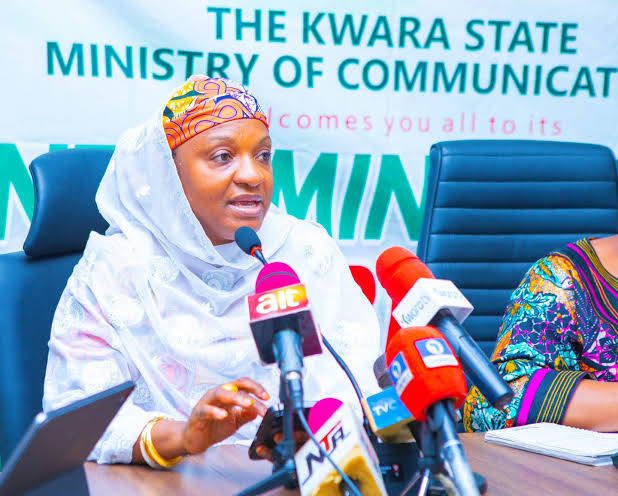…Says traditions should not be used to silence women, commends Governor AbdulRazaq’s inclusive leadership
Kwara State Commissioner for Tertiary Education, Hajia Sa’adatu Modibbo Kawu, has called for a deliberate cultural shift to remove long-standing societal barriers that limit women’s participation in politics and leadership.

Speaking on A Place on the Table, a weekly radio programme on Gerin FM 95.5 Ilorin, the Commissioner said it was time for communities to move beyond cultural norms that discourage women from contributing fully to governance and public life.
The programme, sponsored by UN Women in partnership with the Royal Heritage Health Foundation, is focused on promoting gender inclusion and amplifying women’s voices in politics.
“Women must stand shoulder to shoulder, supporting one another in the pursuit of our collective progress,” she said, urging women across the region to get more involved in political processes—whether through voting, advocacy, or contesting for office.
According to Kawu, achieving genuine inclusive development in Nigeria requires equal opportunities for women to engage in decision-making without being held back by tradition. “Our traditions and cultural beliefs should not be used as tools to silence women or exclude them from politics. As a society, we must evolve and acknowledge the critical role women play in governance, development, and peacebuilding,” she said.
She praised Governor AbdulRahman AbdulRazaq for creating space for women in his administration, describing him as a leader who has shown genuine commitment to gender equity. “His actions continue to inspire confidence among women in Kwara State,” she added.
Kawu pointed to the Governor’s appointment of several women to strategic positions as an example that should be emulated at all levels of government.
She also highlighted the need for stronger mentorship structures and partnerships to support the emergence of future women leaders. “We need to build strong networks of support and mentorship for young women. Those of us in leadership must guide, empower, and prepare them to take up leadership roles,” she said.
The Commissioner called on development partners, civil society organisations, and women leaders to collaborate in creating more opportunities for women in governance.
Leave a Reply